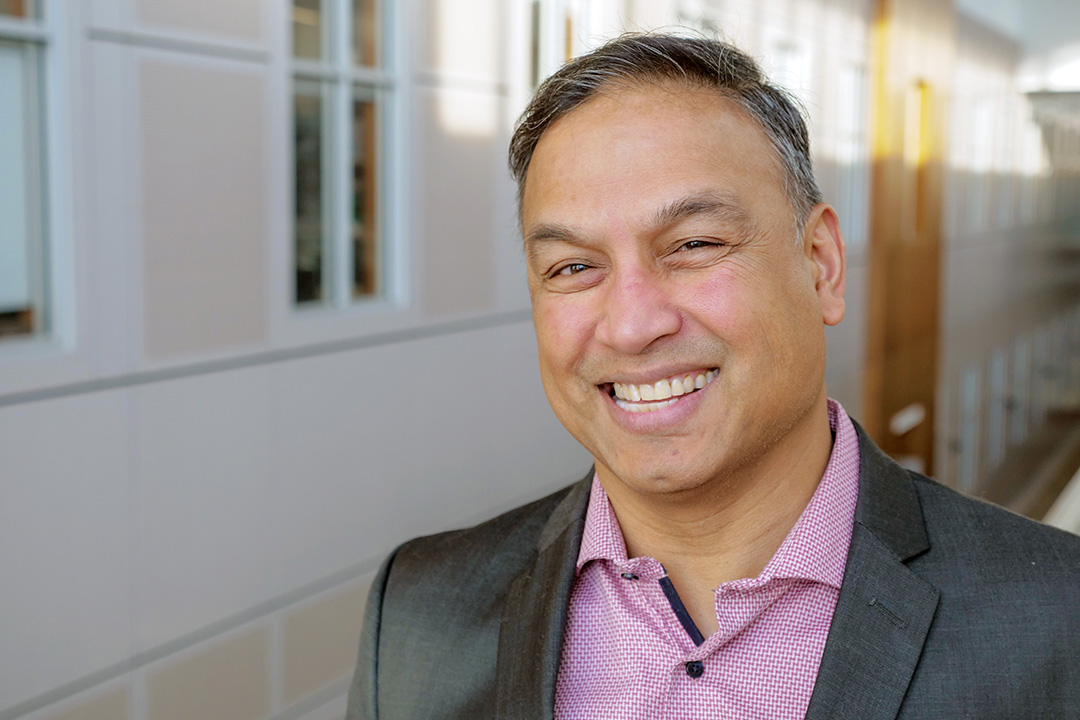
Who is avoiding the COVID-19 vaccine in Saskatchewan? New USask research could help to target the holdouts
University of Saskatchewan (USask) researchers have been studying why Saskatchewanians have been refusing or hesitating to get vaccinated for COVID-19.
Saskatchewan has the lowest COVID-19 vaccination rate and currently the highest COVID-19 death rate of Canada’s provinces. In research published Friday in the journal PLOS ONE, the researchers found characteristics including lower education level and financial instability were associated with an increased likelihood of vaccine refusal and hesitancy.
“Extra effort must be made to reach the demographic groups that are less likely to seek vaccination on their own,” said USask community health and epidemiology researcher Dr. Nazeem Muhajarine (PhD).
Indigenous people, who have a complicated history with inoculations and the health care system, were also found to be less likely and willing to be vaccinated against COVID-19.
“First Nations and the Métis Nation have used a variety of communication channels including social media and radio to encourage their members to get vaccinated in order to protect their community,” said Muhajarine. “Elders have played a central role as early adopters of vaccines, providers of cultural support, and translators.”
“While Indigenous people tend to be at greater risk of severe COVID-19 infection and they also tend to be less trusting of the healthcare system and government initiatives due to generations of traumatic experiences with the medical system,” said Muhajarine.
The research team also found shared key beliefs among the vaccine hesitant and refusing: that the pandemic is not a big threat to their community, nor to their own health, and that the possibility of spreading the virus to others was not concerning.
Among those who were vaccinated, or intended to be, what shifted the balance?
“The strongest predictors of intention to get vaccinated were perceiving COVID-19 to be a big threat to their community and concern about spreading the virus to others should they become infected,” said Muhajarine.
The study involved gathering 9,252 responses from May 2020 to April 2021 from adult Saskatchewanians who were part of an online community panel or who had volunteered. The researchers analyzed that data using traditional statistical approaches as well as machine learning computer modelling to understand the relationship between vaccine intention, sociodemographic characteristics, risk exposure behaviours, mitigating factors against COVID-19, and perceptions of the pandemic.
For those hesitating or refusing vaccination, the reasons they cited for their position included that insufficient clinical trials had been conducted to evaluate the vaccines’ safety, a lack of trust in the vaccine approval process, misconceptions/conspiracy theories/misgivings about vaccine safety, medical reasons, and religious grounds.
While vaccine refusers and the vaccine hesitant share many characteristics, the USask research team found some significant differences between the groups—women and newcomers to Canada were more likely to be unsure about getting vaccinated, rather than refusing.
To overcome hesitancy with newcomers, Muhajarine said community organizations have a pivotal role to play, making vaccinations and vaccination information accessible in appropriate languages and settings, and working with those who newcomers trust to champion the cause.
For those 11 per cent of respondents who were firmly against being vaccinated, they were also less likely to follow other public health measures.
“Those who refuse vaccines (but not those who are unsure) are less likely to report wearing a face mask and physically distancing,” said Muhajarine. “This is troubling because at this stage of the pandemic, these are the behaviours that breathe life to the pandemic.”
In sufficient numbers, those unwilling to follow public health measures or get vaccinated, are potentially keeping the virus in circulation, which in turn leads to more transmissible and threatening strains to become dominant, said Muhajarine.
The research was made possible thanks to 2020 Rapid Response COVID-19 Research Award funding from the USask College of Medicine.
Note: The original article was updated to better acknowledge the historical and current realities of vaccine hesitancy in First Nations and Métis Nation communities.
